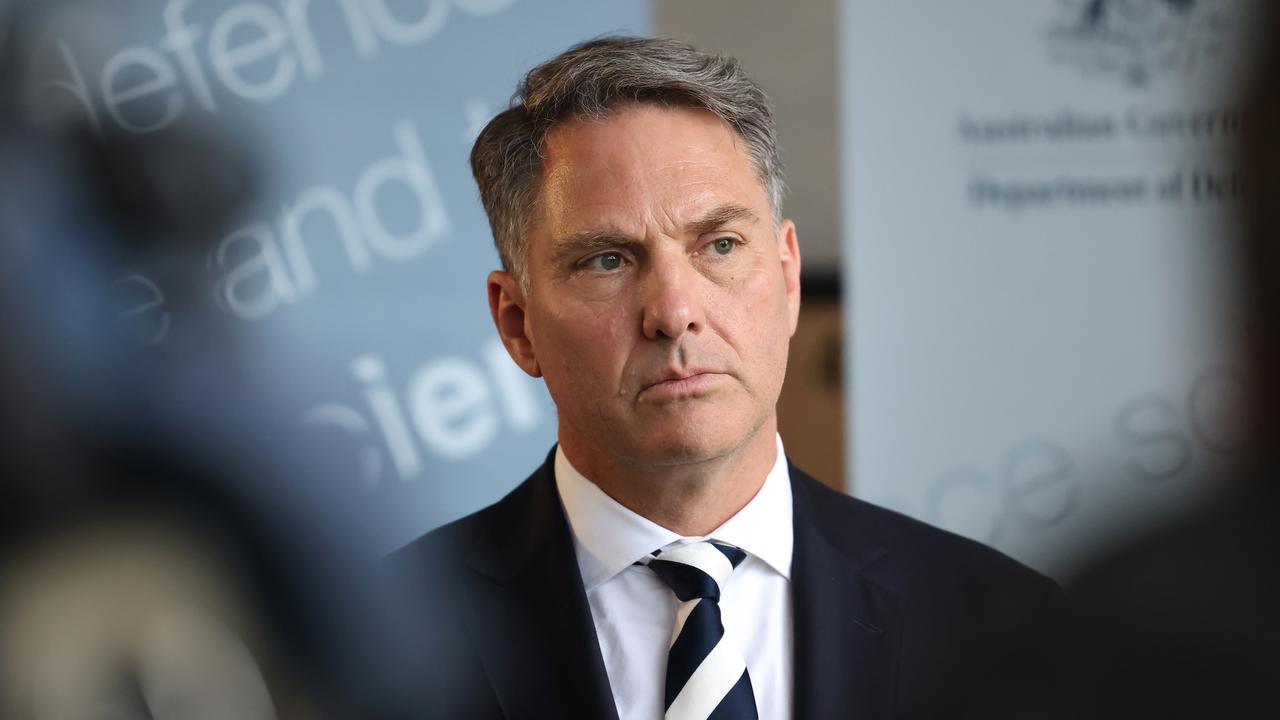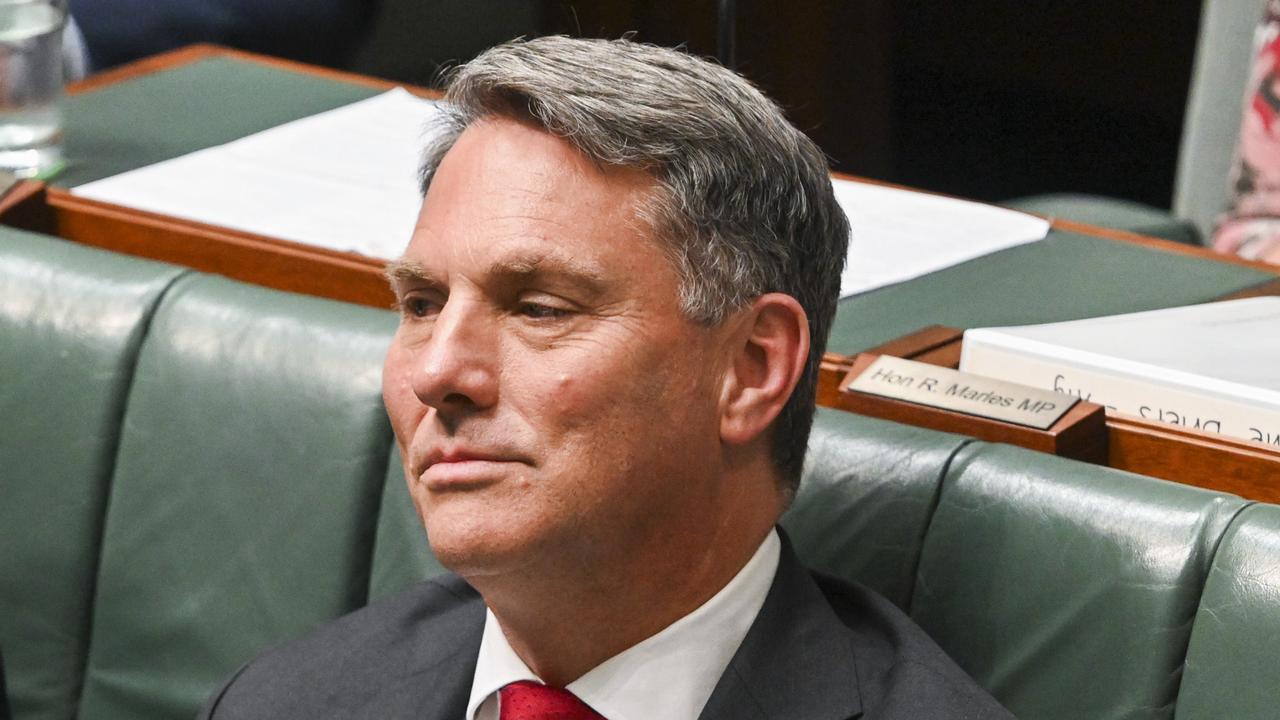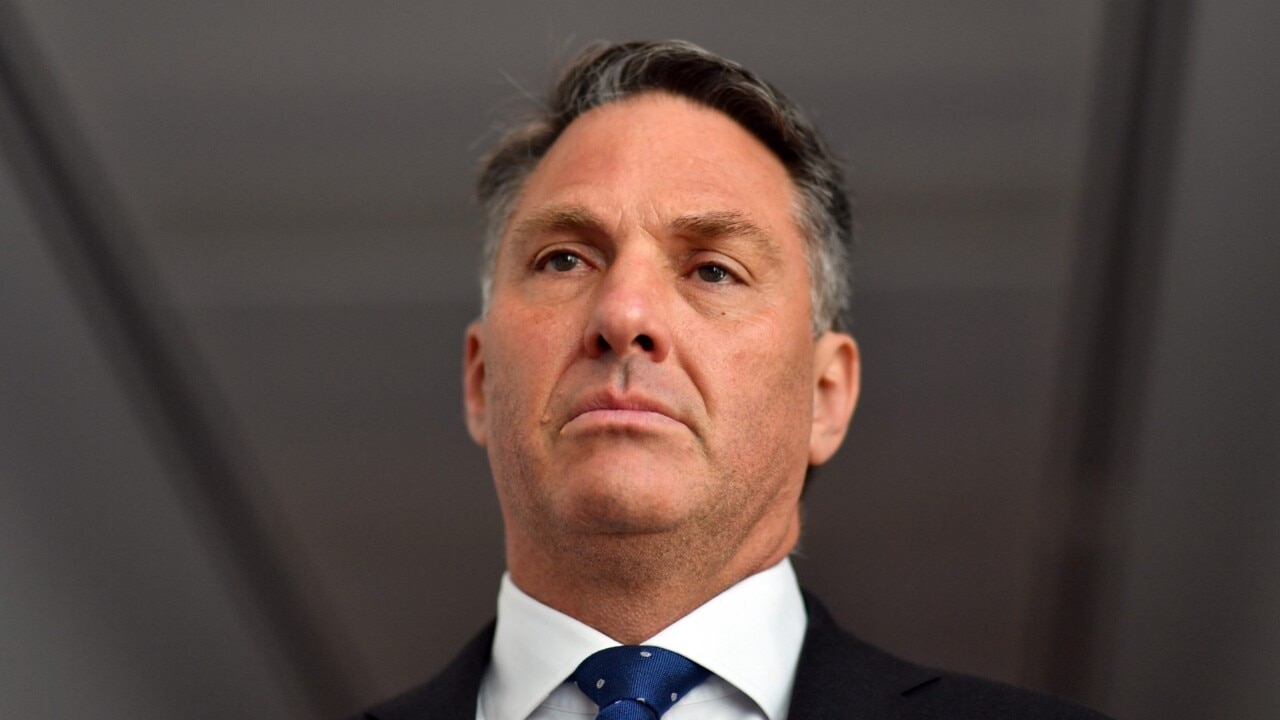Richard Marles, Australia’s Deputy Prime Minister, presents a compelling figure in contemporary Australian politics. This exploration delves into his significant career trajectory within the Australian Labor Party, examining his key policy initiatives, both domestically and on the international stage. We will analyze his role in shaping Australia’s foreign and defence policies, considering his public image and the perceptions held by the Australian public.
This comprehensive overview aims to provide a balanced and insightful understanding of his influence on Australian political life.
From his early career within the Labor Party to his current position as Deputy Prime Minister, Marles’ journey has been marked by significant contributions to various policy debates. His foreign policy stances, his management of Australia’s defence budget, and his interactions with the media have all shaped his public profile. This analysis will dissect these facets, providing context and exploring the complexities of his political landscape.
Richard Marles’ Political Career
Richard Marles’ career demonstrates a steady ascent within the Australian Labor Party, marked by significant policy contributions and key leadership roles. His journey reflects a commitment to progressive politics and a dedication to serving the Australian people. This analysis will explore his career progression, key appointments, political stances, and major policy achievements.
Career Progression within the Australian Labor Party
Richard Marles joined the Australian Labor Party and embarked on his political career by contesting and winning the seat of Corio in the 2007 federal election. His initial years were spent building his profile as a Member of Parliament, diligently working on constituency issues and contributing to parliamentary debates. He steadily gained recognition for his thoughtful approach and his expertise in areas such as national security and defence.
This careful cultivation of his reputation within the party allowed him to progress to more senior positions.
Key Political Appointments and Roles
A timeline of Richard Marles’ key political appointments highlights his increasing influence within the Labor Party:
| Year | Role | Details | Significance |
|---|---|---|---|
| 2007 | Elected Member of Parliament for Corio | Successfully contested the seat of Corio in the 2007 federal election. | Marked the beginning of his political career. |
| 2013-2016 | Shadow Minister for Defence | Served as Shadow Minister for Defence under Bill Shorten’s leadership. | Developed expertise in national security and defence policy. |
| 2022-Present | Deputy Prime Minister and Minister for Defence | Appointed to the role following the election of the Albanese government. | Currently one of the most senior figures in the Australian government. |
Comparison with Other Prominent Labor Figures
Richard Marles’ political stances generally align with the broader progressive wing of the Australian Labor Party. While specific policy positions may differ in nuance from other prominent figures like Anthony Albanese or Penny Wong, a shared commitment to social justice, economic fairness, and a strong national security framework is evident. For instance, while all three support a strong defence force, the specifics of strategic priorities and resource allocation might vary slightly based on individual perspectives.
These differences, however, are often minor and exist within the context of a shared ideological foundation.
Contributions to Significant Policy Debates
Richard Marles has been a significant contributor to numerous policy debates, particularly in the areas of national security, defence, and industrial relations. His contributions are characterized by a pragmatic approach that balances idealism with practical considerations. For example, his work on defence policy has involved balancing the need for modernization with fiscal responsibility. Similarly, his involvement in industrial relations debates reflects a commitment to fairness for workers while acknowledging the needs of businesses.
Richard Marles, Australia’s Deputy Prime Minister, has a significant role in shaping the nation’s future. His portfolio responsibilities are extensive, and understanding his current policy positions is crucial. For more detailed information on his current activities and political stances, please refer to this comprehensive resource on richard marles. Keeping abreast of Richard Marles’ work is essential for anyone interested in Australian politics.
Major Policy Achievements
A summary of Richard Marles’ major policy achievements is presented below. Note that attributing specific achievements solely to one individual in a collaborative political environment is inherently complex.
Richard Marles, Australia’s Deputy Prime Minister, is known for his insightful political commentary. If you enjoy word puzzles and are looking for a mental challenge after a day of following Australian politics, you might find yourself intrigued by the complexities of the nyt crossword clues ; they offer a different kind of puzzle to unravel, much like the intricacies of political strategy that Richard Marles often navigates.
Understanding his decisions requires a keen eye for detail, much like solving a challenging NYT crossword.
| Policy Area | Achievement | Impact | Further Details |
|---|---|---|---|
| Defence Policy | Contribution to the development and implementation of the Albanese government’s defence strategy. | Enhanced national security posture. | This includes initiatives on submarine acquisition and broader force modernisation. |
| Industrial Relations | Advocacy for fair wages and conditions for workers. | Improved worker protections and economic fairness. | This involves engagement with various stakeholders to balance the needs of both workers and businesses. |
Marles’ Role as Deputy Prime Minister
Richard Marles assumed the role of Deputy Prime Minister of Australia in May 2022, following the Australian Labor Party’s victory in the federal election. This position carries significant weight within the Australian political landscape, representing a crucial role in both government and party management.The Australian Deputy Prime Minister’s responsibilities are multifaceted. Primarily, they act as the second-in-command to the Prime Minister, deputizing for them when necessary and providing crucial support in policy development and implementation.
They also often hold a significant ministerial portfolio, adding to their already substantial workload. The Deputy Prime Minister plays a key role in cabinet discussions, influencing government policy and providing a crucial counterpoint to the Prime Minister’s perspective. Furthermore, they are often involved in high-level negotiations and international diplomacy, representing Australia on the world stage. Their role extends beyond governmental duties, often including significant responsibilities within the ruling party’s internal structure.
Key Responsibilities and Actions
As Deputy Prime Minister, Marles has actively participated in cabinet meetings, contributing to the government’s policy agenda. For example, his involvement in shaping the government’s response to the ongoing challenges of climate change and the strengthening of Australia’s relationships with regional partners in the Indo-Pacific region has been notable. His public statements and actions reflect a commitment to these policy priorities.
He has undertaken several overseas trips representing Australia, fostering international relations and promoting Australian interests abroad. These trips involved negotiations with key international figures, solidifying Australia’s position on various global issues.
Challenges Faced
The Deputy Prime Minister’s role presents considerable challenges. Balancing the demands of their ministerial portfolio with the responsibilities of their deputy role requires exceptional organizational and leadership skills. Maintaining a strong working relationship with the Prime Minister while also offering independent advice and perspectives is crucial. Furthermore, managing internal party dynamics and navigating potential disagreements within the government coalition requires deft political maneuvering.
The high public profile of the position also exposes the Deputy Prime Minister to significant scrutiny and criticism.
Key Policy Initiatives
Marles’ key policy initiatives as Deputy Prime Minister have largely focused on strengthening Australia’s regional partnerships and addressing the challenges of climate change. He has actively championed initiatives aimed at enhancing cooperation within the Indo-Pacific region, focusing on bolstering security and economic ties. His involvement in climate change policy has focused on developing a more sustainable and environmentally responsible approach to Australia’s future.
Major Policy Successes and Failures
The assessment of policy successes and failures is often subjective and dependent on various factors, including long-term impacts and changing political landscapes. However, a preliminary overview can be provided:
- Success: Strengthening relationships with key regional partners, leading to increased cooperation on security and economic matters. This success is evident in improved diplomatic relations and increased trade agreements.
- Success: Increased government focus on climate change initiatives. This is demonstrable through the allocation of increased funding and policy development in this area.
- Challenge/Partial Success: Balancing the competing demands of economic growth and environmental protection. This remains an ongoing challenge, requiring ongoing negotiation and compromise.
- Challenge: Navigating complex international relations within the Indo-Pacific region. The geopolitical landscape remains volatile, requiring constant adaptation and strategic responses.
Marles’ Stance on Foreign Policy
Richard Marles’ approach to Australian foreign policy emphasizes a strong alliance with the United States, a focus on the Indo-Pacific region, and a commitment to multilateralism. His tenure as Deputy Prime Minister has seen a shift in emphasis towards navigating the complexities of the regional security environment, particularly in relation to China. This approach reflects a pragmatic balancing act between maintaining strong strategic partnerships and engaging in constructive dialogue with regional powers.
Marles’ foreign policy is characterized by a blend of continuity and change. While maintaining Australia’s traditional alliances, he has also sought to foster deeper engagement with regional partners, particularly in Southeast Asia. This strategy acknowledges the increasing importance of the region in shaping global dynamics and reflects a recognition of the need for a more nuanced approach to managing relationships with key players in the Indo-Pacific.
Key Foreign Policy Statements and Actions
Marles has consistently emphasized the importance of the Australia-US alliance as the cornerstone of Australia’s security. He has publicly reaffirmed Australia’s commitment to the AUKUS partnership, highlighting its significance in enhancing regional security and technological capabilities. Specific actions include increased joint military exercises with the US and the UK, and active participation in regional security dialogues. Furthermore, his engagement with ASEAN nations underscores his commitment to strengthening regional cooperation and addressing shared challenges.
He has also actively participated in international forums, advocating for a rules-based international order and promoting Australia’s interests on the global stage.
Comparison with Previous Australian Governments, Richard marles
Compared to previous governments, Marles’ approach shows a heightened focus on the strategic competition between the US and China, particularly in the Indo-Pacific. While previous governments also prioritized the US alliance, Marles’ administration seems to be adopting a more assertive stance in addressing China’s growing influence in the region. This is evident in his pronouncements on the South China Sea disputes and his emphasis on strengthening partnerships with countries that share concerns about China’s actions.
However, he also emphasizes the importance of maintaining open communication channels with China, suggesting a more nuanced approach than some previous administrations’ more overtly confrontational stances.
Relationships with Key International Figures
Marles has cultivated strong working relationships with key international figures, including high-ranking officials from the US, UK, and various Southeast Asian nations. His interactions have focused on building trust, strengthening partnerships, and coordinating efforts to address shared challenges. The nature of these relationships is characterized by regular high-level dialogue and collaboration on issues of mutual concern. For example, his interactions with US officials demonstrate a commitment to maintaining and strengthening the strategic alliance, while his engagement with Southeast Asian leaders reflects a desire to deepen regional cooperation and build resilience against regional threats.
Comparison of Marles’ Foreign Policy with that of his Predecessor
| Foreign Policy Aspect | Marles | Predecessor (e.g., Payne) |
|---|---|---|
| Emphasis on US Alliance | Strong reaffirmation, focus on AUKUS | Strong alliance, but less emphasis on AUKUS in its early stages |
| Indo-Pacific Strategy | Focus on strategic competition, engagement with Southeast Asia | Emphasis on regional engagement, but less focus on explicit strategic competition |
| China Policy | Pragmatic engagement alongside assertive stance on regional issues | More emphasis on managing relations, less direct engagement on regional disputes |
| Multilateralism | Active participation in international forums, advocating for rules-based order | Active participation, but possibly less emphasis on countering certain actions |
Richard Marles’ tenure as Deputy Prime Minister of Australia has been a dynamic period marked by both significant challenges and notable achievements. His influence on Australian foreign and defence policy, coupled with his public image and engagement with the Australian people, will continue to shape the political landscape for years to come. This examination has highlighted the multifaceted nature of his role, revealing a complex and influential figure within Australian politics.
Question Bank
What is Richard Marles’ educational background?
Information on his educational background would require further research beyond the provided Artikel.
What are Richard Marles’ key policy disagreements within the Labor Party?
Specific policy disagreements would need further investigation beyond the scope of the Artikel.
How does Richard Marles’ public approval rating compare to other Australian politicians?
A comparison of his approval rating with other politicians requires access to current polling data.
What is Richard Marles’ stance on climate change?
Details regarding his stance on climate change are not included in the provided Artikel and require additional research.



